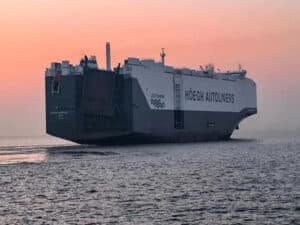
The first ESG handbook for marine minerals launches
Written by Heather Ervin
Photo: The Metals Company
A broad international consortium has created the first handbook for Environmental, Social, and Governance (ESG) disclosure specifically for marine minerals. This handbook aims to facilitate transparent and consistent reporting on key ESG issues related to marine mineral projects, in alignment with global standards.
Marine minerals are emerging as a potential complementary source of critical metals to meet the projected increase in demand, driven in part by the transition to a more mineral-intensive renewable energy system.
The “Marine Minerals ESG Handbook” project has developed the first edition of an ESG disclosure framework for the marine minerals industry. This was achieved through a two-year iterative process with involvement of marine mineral developers, contractors, financial institutions, science institutions, non-governmental organizations and regulators.
The objective of the ESG Handbook is to:
- Provide guidance to meet international expectations regarding ESG disclosure for the marine minerals industry
- Provide an overview of the material ESG topics for the marine minerals industry
- Provide recommendations for the consistent disclosure of information for each material topic
- Provide a tool for structured ESG documentation enabling useful ESG disclosures for internal and external stakeholders
- Facilitate transparency and consistent reporting to inspire and facilitate optimization and improvement across the sector
The marine minerals ESG guidance builds on existing global non-financial performance and ESG reporting standards from recognized institutions while considering the specific challenges and opportunities of the marine minerals industry. This disclosure guideline is voluntary and aims to provide a uniform basis for communication with a wider set of stakeholder groups.
The current global guideline for ESG disclosure is not dependent on, nor replacing regulations.
“We hope that the development of this ESG handbook will encourage ESG thinking and improvements before any commercial activities begin,” said Jon Hellevang, R&D Manager, GCE Ocean Technology.
“DNV is pleased to be a part of this consortium. Given the role of critical metals in the energy transition it is important to ensure responsible extraction and re-circulation of metals. The Marine Minerals ESG Handbook allows for transparent and consistent reporting on the ESG performance of marine mineral projects, aligned with global standards. I hope the industry adopts this guidance positively in support of a sustainable energy transition,” added Tor Jensen, Vice President Environmental Risk Management, DNV.
The “Marine Minerals ESG Handbook” can be downloaded from the DNV website here.
Collaborating Institutions
The projects reference group has consisted of the following companies and organizations:
- Adepth
- Advisory Committee on Protection of the Sea
- Aker BP
- AU Commission and the African Minerals Development Centre
- Deep Ocean
- DeepSea Mining Alliance
- DHI
- DNV
- Equinor
- Fearnley Securities
- Fórum Oceano
- GCE Ocean Technology
- Global Sea Mineral Resources
- Green Minerals
- Guangzhou Geological Survey (GMGS) / China Geological Survey
- INESC TEC
- International Marine Minerals Society
- Japan Oil, Gas and Metals National Corporation
- Loke / UK Seabed Resources
- MiningImpact project
- Namibian Marine Phosphate (Pty) Ltd.
- Natural History Museum, UK
- Nautilus Minerals Niugini
- Norwegian Forum for Marine Minerals
- NOV
- Ocean Minerals
- Odyssey Marine Exploration
- Pôle Mer Bretagne Atlantique
- The Cobalt Institute
- The Metals Company
- The Nickel Institute
- The Pacific Community
- Transocean
- International Seabed Authority (ISA) (Observer status)
- Organization for Economic Co-operation and Development (Observer status)
About GCE Ocean Technology
GCE Ocean Technology is a Norwegian cluster supported and co-funded by Innovation Norway, The Research Council of Norway and Siva. The cluster comprises 130 partners and members from industry, universities, R&D institutions and public entities. Its objective is to strengthen innovation to accelerate the energy transition.
About DNV
DNV is the independent expert in risk management and assurance, operating in more than 100 countries. Through its broad experience and deep expertise DNV advances safety and sustainable performance, sets industry benchmarks, and inspires and invents solutions.
Whether assessing a new ship design, optimizing the performance of a wind farm, analyzing sensor data from a gas pipeline, or certifying a food company’s supply chain, DNV enables its customers and their stakeholders to make critical decisions with confidence.
Driven by its purpose, to safeguard life, property, and the environment, DNV helps tackle the challenges and global transformations facing its customers and the world today and is a trusted voice for many of the world’s most successful and forward-thinking companies.




